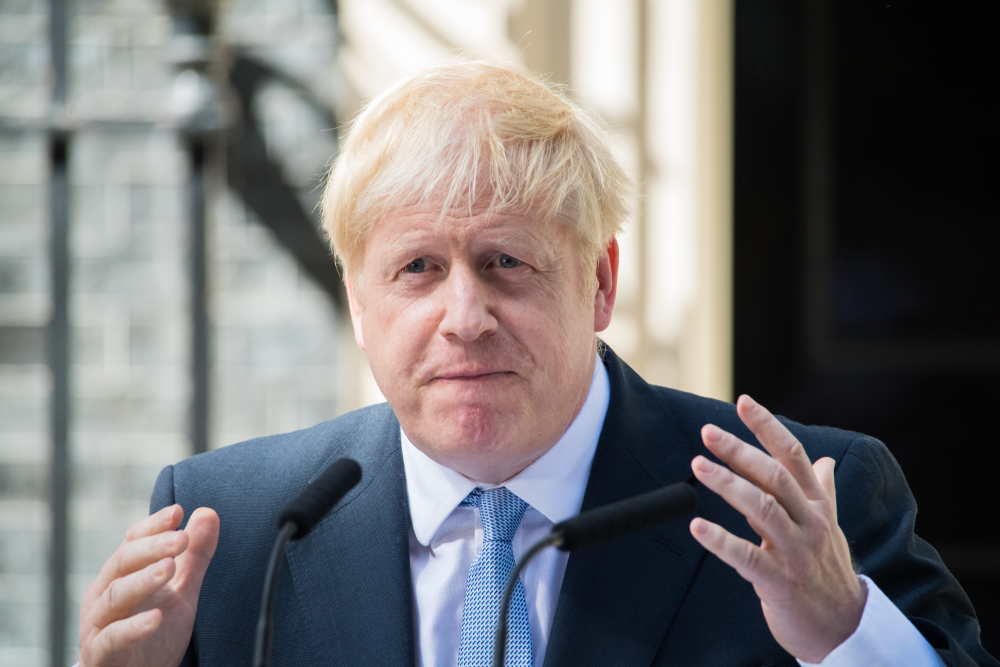The infamous promise by Prime Minister Boris Johnson of “40 new hospitals” has not only been shown to be misleading, but the six trusts that will get new hospitals will be saddled with hefty extra payments.
Even though the extravagant rip-off funding through PFI has been brought to a halt, trusts will have to pay an annual “dividend” payment of 3.5 percent each year for the capital investment they receive and on the increased value of their assets, according to a Health Service Journal report.
Although there would be no requirement to pay back the initial funding, the 3.5% payments would continue indefinitely as an added financial burden to the trust.
The £2.7 billion that will be allocated to the six trusts for rebuilding and upgrading their hospitals is part of a £3 billion “health infrastructure plan”. But far from being generous, it is less than a third of the £10 billion called for in the Naylor review of estates two years ago.
Hillingdon Hospital – no special treatment for Boris Johnson’s local
Meanwhile the 21 trusts planning 34 new hospitals (including a number of community hospitals with few if any acute beds) get to share £100m of “seed funding,” and offered only the vague hope that their business plans might be accepted some time after 2025.
The increased costs facing trusts can be considerable: the HSJ takes the example of the West Hertfordshire Hospitals Trust, which is seeking around £400m to rebuild its crumbling general hospital in Watford, despite complaints from elsewhere in the area that the site is inaccessible.
The trust has told staff that “The money is not a free gift but is a bit like an ‘interest only mortgage’ — we will make an annual dividend payment on the sum provided but we won’t be asked to repay the principle sum. The extra cost pressure due to capital charges would be around £20m per year.”
Nuffield Trust analyst Sally Gainsbury told the HSJ: “While 3.5 per cent looks high compared to prevailing interest rates at present, a more significant problem is the fact provider incomes have become so squeezed that many already struggle to cover their staff costs, let alone generate a return on their physical assets to reflect the costs of that investment.”
The West Herts Trust has a backlog maintenance bill of £65m, and already has to pay interest on £195m of government loans accumulated over recent years to prop up its flagging budget, and is struggling to meet a target of reducing its deficit this year to £27m: an extra requirement to find at least £20m per year is likely to force more desperate cost-cutting measures, even when the new building is eventually opened.
Election: fact Vs fiction on all the key NHS issues
Of the other trusts promised new hospitals, Barts Health already has accumulated loans of £149m and a £65m deficit; Leeds Teaching Hospitals has a relatively small deficit but £89m of loans; Princess Alexandra Hospital in Harlow has £66m of loans and is projecting a deficit of £27m; University Hospitals Leicester has a massive £209m of loans already in place, and expects to meet its control total deficit of £49m. So none are strongly placed to pay out the additional costs of the new buildings.
Senior policy adviser at NHS Providers, David Williams, told the HSJ:
“This shows that capital and revenue are closely related, not isolated funding streams. Trusts need both adequate, multiyear capital investment and sustainable revenue settlements to maintain services at the appropriate standard.”
Dear Reader,
If you like our content please support our campaigning journalism to protect health care for all.
Our goal is to inform people, hold our politicians to account and help to build change through evidence based ideas.
Everyone should have access to comprehensive healthcare, but our NHS needs support. You can help us to continue to counter bad policy, battle neglect of the NHS and correct dangerous mis-infomation.
Supporters of the NHS are crucial in sustaining our health service and with your help we will be able to engage more people in securing its future.
Please donate to help support our campaigning NHS research and journalism.


